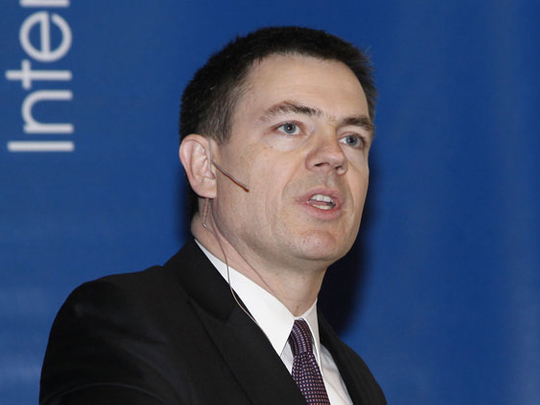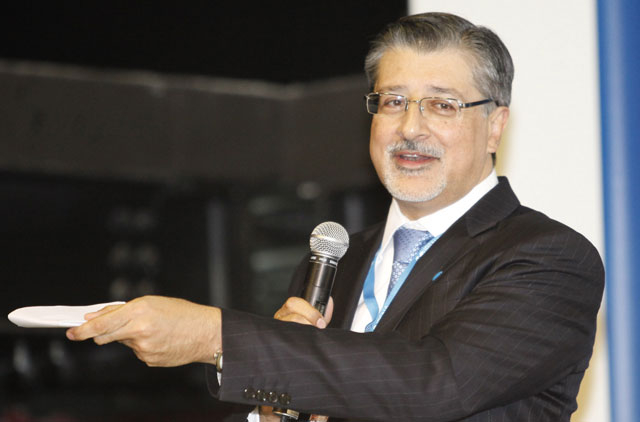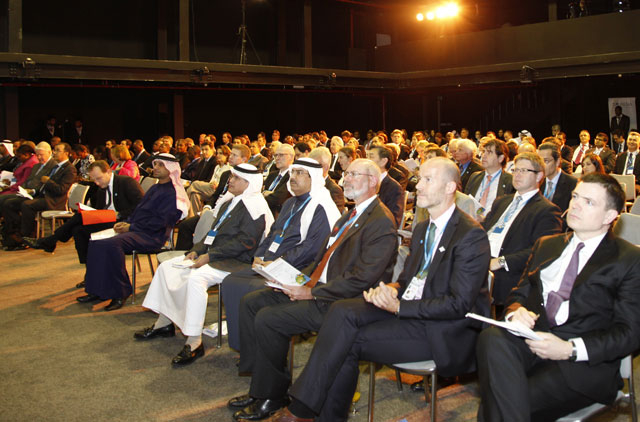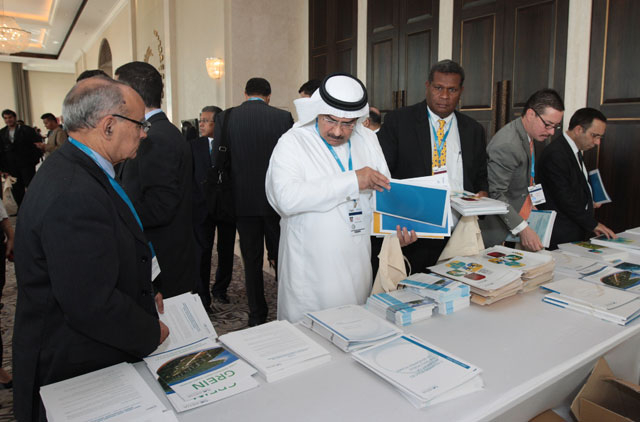
Abu Dhabi: Over 15 per cent share of clean energy in world energy mix tells the story of successfully resisting the political pressure from oil and gas lobby against renewable energy projects, according to the top ranking officials from various countries.
Determined nations including the UAE, have overcome the political pressure to initiate ambitious clean energy projects, they said at a debate organised by International Renewable Energy Agency (Irena) and Financial Times at the third Irena assembly in Abu Dhabi.
When a US state government announced its plan to increase share of clean energy up to 25 per cent in the energy mix, there was a huge resistance from the oil and gas industry to check that decision, an American participant among the audience said. He asked the panelists including decision makers how they tackle such political pressure.
Ed Crooks, US industry and energy editor at Financial Times, who was the moderator of the debate, asked the fellow panelist Sultan Al Jaber, UAE special envoy for Energy and Climate Change, and Chief Executive Officer of Masdar, to share the UAE’s experience as the nation pioneered the clean energy initiatives in the region.
“In fact, political pressure against clean energy is not different in our country,” Al Jaber said. “But we are blessed with the wise leadership of our country; without their support we would not have been able to take a single step in this direction [promoting clean energy]”.
He said there were two versions on renewable energy. One version found the clean energy as a vehicle for nation building; making it competitive in the coming years, Al Jaber pointed out.
The other version finds it a threat — domestically, regionally and globally. But the wisdom of the UAE leadership supported the first version and took a bold decision to invest $15 billion in Masdar [Abu Dhabi Future Energy Company to promote clean energy]. He emphasised such a decision was taken when other countries in the region even did not think of clean energy.
He said many people in the region then criticised the UAE initiatives in clean energy.
“But the same people who criticised us followed the suit very soon!”
He said the previous critics in the region now understand that clean energy is a must. “[They realise ] it is not a luxury but a fundamental way forward!,” Al Jaber said.
About Saudi Arabia’s experience, Dr Khalid M Al Sulaiman, Vice President for Renewable Energy at King Abdullah City for Atomic and Renewable Energy (K.A.CARE) said, similar political pressure is there in his country against clean energy.
Oil and gas industry believed that clean energy was not feasible. “But now they realise that they have to utilise the clean energy.” He said the basic problem is most of the oil and gas companies do not consider themselves as energy companies. “To utilise the clean energy they have to transform themselves as energy companies.”
The prominent oil company Saudi Aramco has taken an initiative in that direction. “Although it may take time for such a transformation, it is a right step,” Al Sulaiman pointed out.















